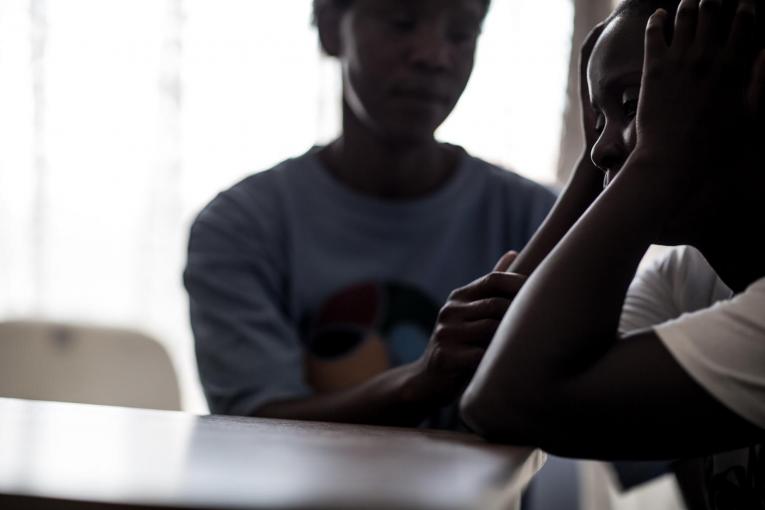In the enchanting landscapes and bustling cities of Uganda, where the rhythms of life reverberate with cultural vibrancy, a less visible yet deeply pervasive challenge haunts the daily lives of many. From dawn till dusk, a significant number of individuals awaken to a relentless battle within their minds, grappling with a spectrum of mental health issues that often go unnoticed.
The day begins, as it does for millions across Uganda, but for many, the journey from sunrise to sunset is riddled with inner turmoil. Anxiety, depression, post-traumatic stress disorder (PTSD), and substance abuse are but a few of the myriad mental health issues that take root in the minds of Ugandans. The weight of these issues goes beyond fleeting emotions; it becomes an all-encompassing struggle, shaping thoughts, emotions, and behaviors.
Depression, often shrouded in a cloak of sadness and despair, permeates the lives of countless individuals. The weight of unrelenting hopelessness cripples aspirations and dims the vibrancy of life. Anxiety, its counterpart, manifests as a persistent feeling of unease, gnawing at the edges of daily activities.
PTSD, a haunting legacy of traumatic experiences, grips survivors with flashbacks and nightmares, etching painful memories into their present. Substance abuse, on the other hand, is a coping mechanism for many, a desperate attempt to escape the clutches of mental agony.
The impact of mental health issues extends far beyond the realm of individual experience, cascading into various domains of life. Relationships, once nurtured with care, bear the brunt of emotional turmoil. Marriages falter, families strain, and the intricate threads that weave communities together begin to unravel.
In the realm of education, the weight of mental health issues casts a shadow on concentration and academic performance, hindering the development of young minds. Workplaces, bustling hubs of productivity, are not immune to the silent struggle. Mental health concerns often lead to decreased efficiency, absenteeism, and diminished workplace morale. The economic toll is palpable, as individuals grappling with mental health issues find it increasingly challenging to contribute meaningfully to their societies.
While mental health issues do not discriminate, certain groups within Ugandan society are more vulnerable to their impact. Young adults, teetering on the precipice of adulthood, grapple with identity crises and societal expectations, leaving them susceptible to the clutches of depression and anxiety.
Women, burdened by gender inequalities and societal pressures, navigate a precarious path that often takes a toll on their mental well-being. Marginalized communities, facing a convergence of stressors, bear a disproportionate burden of mental health issues. Socioeconomic disparities, limited access to resources, and historical injustices contribute to the complexity of their mental health struggles.
For these groups, the lack of awareness, stigma, and limited support exacerbates the challenges they face.
Mental health is not an isolated concern; it intertwines intricately with other health issues, creating a complex tapestry of interconnected challenges. The convergence of mental health issues with illnesses such as HIV, tuberculosis (TB), and Non-Communicable Diseases (NCDs) creates a synergy of suffering. The stress and anxiety associated with these conditions can amplify mental health concerns, hindering recovery and impeding adherence to treatment plans.
The cycle is vicious and mental health issues can weaken immune systems, making individuals more susceptible to infections like HIV and further complicating their health trajectory. The intersection of mental health and physical health forms a tangled web that demands comprehensive intervention strategies.
As the layers of mental health challenges in Uganda are peeled back, a resounding call to action reverberates. It is incumbent upon the government, civil society, healthcare professionals, and communities to unite in a concerted effort to address mental health with the gravity it demands. Robust policies must be forged, earmarking dedicated resources to mental health programs and initiatives.
Accessible mental health services should be established in both urban and rural areas, bridging the existing gap in care. Public awareness campaigns, shattering the stigma surrounding mental health, should permeate every corner of society. Schools, workplaces, and communities must become nurturing environments that foster empathy, understanding, and support for those battling mental health issues.
Through united efforts, empathy, and unwavering determination, Ugandans can dismantle the barriers that shroud mental health in darkness. By weaving mental health into the fabric of national development, the nation can pave the way toward a brighter, mentally healthier tomorrow, where every sunrise heralds a day of hope, understanding, and resilience.
Do you have a story or an opinion to share? Email us on: dailyexpressug@gmail.com Or join the Daily Express WhatsApp channel for all the latest news and trends or join the Telegram Channel for the latest updates.


